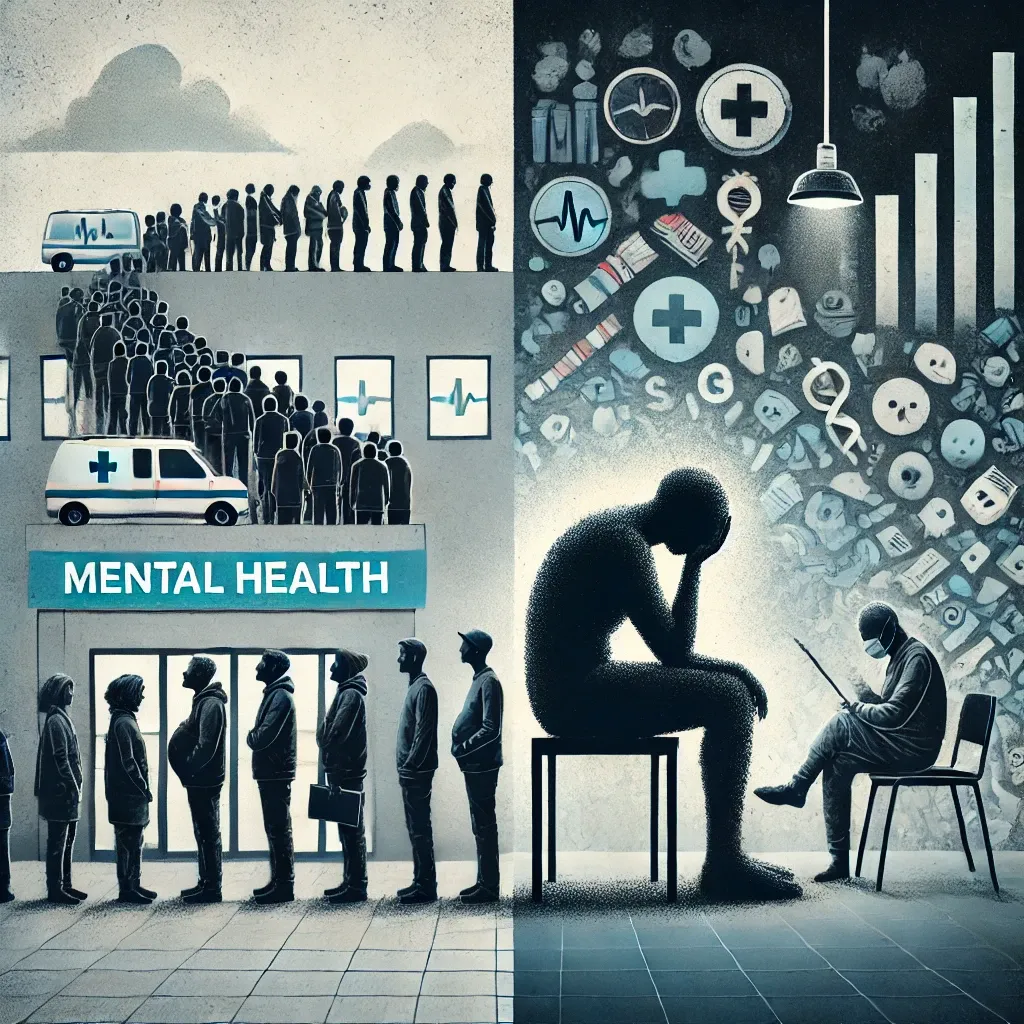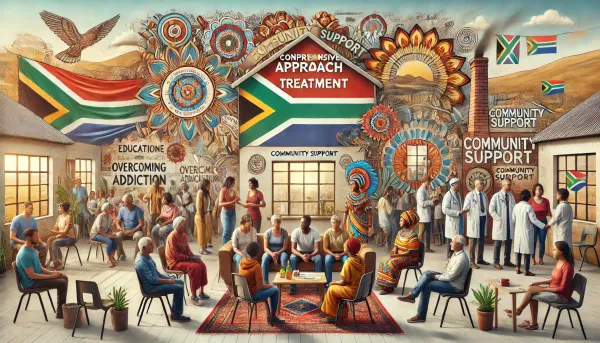Mental Health in South Africa: A R161 Billion Crisis – Time for a New Approach

Mental health is no longer a silent crisis in South Africa. Recent reports estimate that mental health issues cost the South African economy a staggering R161 billion, underscoring the urgent need to address mental health and its related challenges, including trauma, non-communicable diseases (NCDs), HIV, and substance abuse. Current approaches to mental health and wellness in South Africa, while well-intentioned, seem inadequate. We aren’t winning the battle against these interconnected issues, and without a shift in approach, we risk further costs—both economic and societal.
Why Aren’t We Winning the Battle?
- Fragmented Services: The current mental health system is highly fragmented, with mental health services often treated separately from substance abuse, HIV, and NCD management. This siloed approach fails to address the complex intersections between these issues, leaving many patients without comprehensive care.
- Stigma and Limited Access: Cultural stigma and limited access to mental health resources keep many individuals from seeking help. The few available public services are often overburdened and underfunded, especially in rural areas, and private care remains financially inaccessible for much of the population.
- Reactive vs. Preventative Approaches: Our healthcare system focuses heavily on reactive care, waiting until crises arise rather than investing in preventive measures. This results in repeated emergency interventions, perpetuating a cycle of crisis without addressing root causes.
- Lack of Trauma-Informed Care: Trauma is a significant contributor to mental health issues, yet trauma-informed care is still uncommon in South Africa’s mental health landscape. Unresolved trauma is a common thread linking mental health struggles, substance abuse, and chronic illness.
- Social Investment Initiatives Fall Short: Many companies are beginning to invest in employee wellness, yet most efforts focus on surface-level solutions like wellness days or stress workshops. These programs, while beneficial, fail to provide the deep, continuous support necessary to tackle complex mental health issues.
- HIV and Mental Health Overlap Ignored: Substance use disorders and mental health issues are often intertwined with HIV, yet individuals with HIV frequently lack access to integrated mental health services. This gap perpetuates cycles of stigma and neglect, particularly for those most vulnerable.
Why We Need a Radically New Approach
South Africa needs a paradigm shift, one that recognizes mental health as a cornerstone of overall well-being and economic stability. Social investment should aim to create lasting change, addressing root causes, equipping people with tools for resilience, and bridging gaps in care. By uniting private and public sectors, NGOs, and local communities, we can create a system of shared responsibility and foster sustainable solutions.
A 6-Point Plan to Drive Change
- Integrated Care for Holistic Healing
Create a unified health framework that integrates mental health, substance abuse, HIV, and NCD management. Establish collaborative hubs where multidisciplinary teams—including mental health professionals, addiction specialists, HIV counselors, and primary care providers—deliver care together. This integrated approach is cost-effective and holistic, addressing the person as a whole. - Increase Trauma-Informed Care and Training
Emphasize trauma-informed care across all health services. Equip healthcare providers with training to recognize and treat trauma, especially as it relates to substance abuse, mental health, and chronic disease. Trauma-informed care not only aids recovery but also empowers individuals to reclaim control over their health. - Expand Social Investment in Sustainable Programs
Encourage companies to make deeper social investments, moving beyond one-off wellness initiatives to establish long-term, impactful programs. These should include mental health days, regular access to counseling, workplace support groups, and family involvement programs. Employers who invest in sustained employee wellness see reduced absenteeism, improved morale, and increased productivity. - Promote Preventative Health through Community Programs
Shift focus from crisis management to preventive care. Fund community-based programs that promote early intervention, particularly among high-risk populations. Education campaigns, regular screenings, and access to primary care can identify and manage mental health, NCDs, and substance use issues before they escalate. - Leverage Technology for Accessibility
Develop digital mental health services, including telepsychiatry, mobile apps, and online support communities. These can bridge the access gap, particularly in rural and underserved areas. Additionally, digital platforms can help users track mental health metrics, manage medication adherence, and access crisis support when needed. - Public-Private Partnerships and Policy Advocacy
Drive policy changes by fostering collaborations between government, private sector, and NGOs. Advocate for more inclusive mental health policies and resources, including subsidized care options for lower-income individuals. Partnerships allow for resource pooling, cost-sharing, and innovation, enabling comprehensive and sustainable solutions.
Building a Brighter Future
We have a collective responsibility to prioritize mental health and the wellness of our communities. By rethinking our approach and investing in comprehensive, trauma-informed, and accessible care, South Africa can begin to address the interconnected crises of mental health, substance abuse, NCDs, and HIV. This 6-point plan is a step toward creating a sustainable model of care, transforming lives, strengthening workplaces, and improving the overall health of our nation.
The need for change is clear. Let’s not waste another billion on fragmented, reactive care. Instead, let’s invest in our most valuable asset—our people—and create a system that nurtures, heals, and uplifts.



